|
At our Leading with Purpose sessions, I ask: "Given all that you've learned and experienced today, if you could commit to doing one thing to make a difference, what would that be?" Since the start of 2019 we've been convening groups of business founders, leaders and pioneers around a campfire to talk about how to solve 21st challenges - of how you lead with meaning and purpose in an increasingly uncertain world, and improve the planet and your business. So far we've run six campfires for 40 leaders. Publicly committing to an action in front of the group has been a key part of each session. This is what people have committed to:
I continue to marvel at nature's ability to support meaningful connections and creative thinking. Some powerful pledges were made. We're starting to have the conversations that need to be had.
In the last few months, School of the Wild has been convening groups of business leaders to explore what we can do to address global social and environmental challenges, and how to make the world a better place. Here, business coach Neil Pavel explains what he experienced around the campfire.
I have experience of this twice now after Nigel, who runs School of the Wild, invited me to attend a couple of the Leading with Purpose campfire catalyst sessions that he facilitates. For a few hours, myself and the other people in these groups shared our stories, ideas and insights into leadership and responsibility, and about culture and the future. Being outside has an immediate impact. I notice how we all think and behave more-than-slightly differently. There’s an openness to the conversations, less boundaries, and lots of trust. Having the time and space to reflect on leadership and impact with a bunch of complete strangers allows a wide range of subjects, voices, and opinions to be heard and mulled over. Being outside has an immediate impact. I notice we all think and behave more-than-slightly differently. There’s an openness to the conversations, less boundaries and lots of trust.
Marketing guru and writer-photographer, Lauren Psyk, came to a Leading with Purpose campfire catalyst session. She wasn't expecting it to be so powerful. This is her story.
photo of Lauren Psyk by Saskia Nelson.

In my twenties, I was attracted by the bright lights of London and had ‘trendy’ marketing jobs with media organisations.
From an outside perspective I had what every young professional wants - I worked on partnerships with music and media brands, I got to go to glamorous events and trendy media industry parties and I had a decent enough salary to enjoy the London life. Back then, nobody talked about millennials, the buzz word at the time was urbanites - and I was living the stereotypical urbanite life; work hard, play hard, spend hard.
Lack of purpose
But despite my initial excitement, within a couple of years it became clear to me that I had set off on the wrong path. Neither my job nor my lifestyle were going to make me happy or give me any sense of fulfilment. Life and work felt meaningless, empty and vacuous - essentially I was lacking any sense of purpose. So I quit the media life and went to work in Government communications, on a THINK! road safety advertising campaign aimed at reducing deaths and injuries amongst motorcyclists. My work had meaning and I felt fulfilled. I got a huge sense of achievement from the fact I was doing something with purpose, and which had a positive impact. Eventually I left London to seek a healthier and more balanced lifestyle by the sea here in Brighton, and I started designing a career that fits around my needs and values. More recently, I have worked a lot in the charity sector and on projects which give me creative freedom. But purpose, and doing work which has a positive impact is still a core part of what drives me. Conversations that matter around the fire with another lovely group of business leaders. Noticing how nature supports creative thinking connection and deeper intelligence. Powerful stuff.
Leading with Purpose taster session for business leaders, making connections, and having meaningful and rich conversations that matter around the fire. We continue to marvel at the power of nature to bring people together and to spark creative thinking.
What’s the point? How to maintain your business mojo in the face of crises and uncertainty.24/2/2019
In such a rapidly changing and unpredictable world, identifying an overriding purpose for your business is more important than ever. Being a greater force for good and achieving personal fulfilment are arguably just as important as pursuing profit. Here’s why connecting with your purpose is a vital part of a successful business strategy. Words by Lauren Psyk.
Read time: 4 mins
The world is changing and the future is unpredictable. Brexit, Covid-19, climate disruption and the transition to a digital economy are just some of the more obvious challenges facing today’s business leaders.
In the face of these uncertainties, and with the daily demands of running a business, it’s easy to see how your purpose can get lost. The urgent day-to-day pressures of meeting deadlines, finding clients and managing a busy team can often become more important than what seem like idealistic notions of ‘purpose’. This may lead you to feel a dichotomy between being true to your values and running a successful business that earns you a decent living. The desire to do some good, rather than chase purely short-term financial goals, is something you may end up putting aside. And if you’re an entrepreneur or a startup, you need to achieve credibility, clients and an income quickly in order to grow your business. It’s all too easy to grasp at partnerships, projects or areas of work that don’t meet your wider objectives just to get your business off the ground. As Andrea Collings, Director of Brighton based startup Terrier Marketing, says: “When we first started out, we were chasing clients who weren’t the right fit for us, just to get up and running. Eventually we realised we needed to take a step back and reconnect with our purpose. We said to ourselves: 'Hold on a minute, why are we doing what we do? We didn’t start out to work this way, we have certain values to uphold, and these have become lost.' We’re now attracting and working with clients who are the right fit for us, and we are right for them.” We're excited to be launching a new programme for founders and business leaders, based around a fire in the wild.
We're fusing reflection with immersive nature activities to help you reconnect your business with your values and your purpose. It's called Campfire Catalyst: Leading with Purpose. It starts March 21st, in Brighton. If you'd like to join, early bird tickets available til Jan 31st. Details here (please share!) Technology now enables anyone to run a business wherever, and however, you choose. Coupled with a fundamental shift in attitudes to work, it’s clear that the very concept of what a ‘team’ means in the modern organisation is changing dramatically. As CEOs and team leaders you ignore these developments at your peril. How can you embrace these changes and continue to create happy, productive and successful teams in the 21st century? asks Lauren Psyk Remote workers at a co-working space: Photo: Shridhar Gupta/Unsplash Read time: 4 mins In 2019, people no longer ‘go to work’ in the same way they used to - in fact, you could say work is no longer a place, but a space. Business teams are not just spread across a city, but often across the globe. Many employees now enjoy flexible and remote working, which can no longer be seen as a perk but a central part of working life.
The digital world is not the only driver for this change in where and when we work. There has also been a dramatic shift in our very attitudes to our careers. Increasingly, salary is not seen as the key marker of success. Goals for career fulfilment now include being valued as an individual, working fewer hours, protecting your mental health and working for a more socially responsible organisation. When looking for new roles, a positive work/life balance comes before salary or career progression as one of the most important things employees seek. Bestselling books such as The 4-Hour Work Week promote the idea of living more and working less. Alongside this, social media means your employees are all busy cultivating a strong ‘personal brand’ online and individualism is valued above all else. In recruitment, the power is increasingly held by the applicants, who see themselves very much as their own brands and are asking: “Does this company fit with my values and my ethos? Can they give me the work fulfilment I’m after?” If you can’t deliver the lifestyle that a talented, young graduate is looking for, there are plenty of other creative, forward thinking startups and organisations who can. How Spending Time Around a Fire Had Unexpected Benefits, Both for Myself and for My Business17/1/2019
Getting a different perspective with like-minds around the fire was worth the investment, and got me some great new clients, says PR and communications consultant, Jill Woolf  When I saw the email come through from the NatWest Entrepreneur Accelerator for a ‘Mentors Go Wild’ event set in the great outdoors in Stanmer Park, my first reaction was “They’ll never get me in wellies round a camp fire!” I left the email in my inbox and carried on with daily life. Something about it must have resonated though because I was drawn back to it and reconsidered. As anyone who knows me well would expect, my initial concerns were over shallow (I prefer the word ‘practical’ – it’s all about personal branding) things like what the weather would do to my hair, and what would be the best thing to wear. Having assuaged my doubts on these, I focused on the benefits – spending time out of the office, getting back to nature, learning new things, looking at issues from a different perspective, sharing with strangers who didn’t know me and therefore would respond with potentially fresh ideas and views – and suddenly the idea seemed delightful. No email, no mobile phone, no interruptions for a whole morning. A focus on my own thoughts, plans and ideas. Learning. Listening. Interacting. Sharing. Helping others. And so I booked myself on, found my wellies and joined in.
There's a reason they say it's lonely at the top.
For the leader of any organisation, you may have lots of people working for you, but with the challenge of a changing and diverse workforce, a never ending conveyor belt of meetings, reports, and decisions, with uncertain outcomes and the pressure to deliver, you can end up feeling pretty isolated and wondering how best to lead effectively. You’re not alone: 60% of leaders say feeling isolated affects their performance, and instead they get caught up in the small details and push aside the decisions that really matter. [†] Good session with a group of green business leaders working on #leadership and #innovation29/9/2018
Great session around the fire with eight leaders of organisations, working on leadership and innovation in the green economy. An event we ran for Brighton University's Green Growth Platform.
#aroundthefire #natureinspires #schoolofthewild #sustainability #sustainabilitymatters #connection #weareallhuman #whatsneeded "From de-stressing to being more creative, my work has benefitted from spending time around a fire with other business people," says Amy Lishman of Brighton Chamber of Commerce. "Here's how it helped me..."  I’m lucky that in my job I’m not constantly stuck in front of a screen for 8 hours a day. I get out and about and meet people across Brighton and attend networking events in venues across the city. Most of these events and meetings are indoors though - in offices, coffee shops and co-working spaces like Platfr9m and Freedom Works. So when I was invited to attend Mentors Go Wild, a session run as part of the NatWest Business Accelerator programme and facilitated by School of the Wild, a morning of conversation, teamwork and communication – all outdoors in the beautiful Stanmer Park – I literally jumped at the chance. We did a number of exercises throughout the morning led by Nigel and the School of the Wild team. All designed to help the group get to know each other, discuss challenges and opportunities, and bring a group of seemingly disparate individuals together. I’m not going to spoil the surprise of the innovative exercises we did, but instead I offer three things I learnt from working outside for the morning. Being open in the open. Inspiring campfire conversation with Brighton business leaders and mentors19/4/2018
Business leaders, mentors and entrepreneurs getting to know each other better around the fire at a Creative Campfire. Nature helps to breakdown personal barriers and makes it easier to connect.
|
Author & CuratorNigel Berman is the founder of School of the Wild. Archives
March 2024
|
Leaders |
About Us
Support |
|

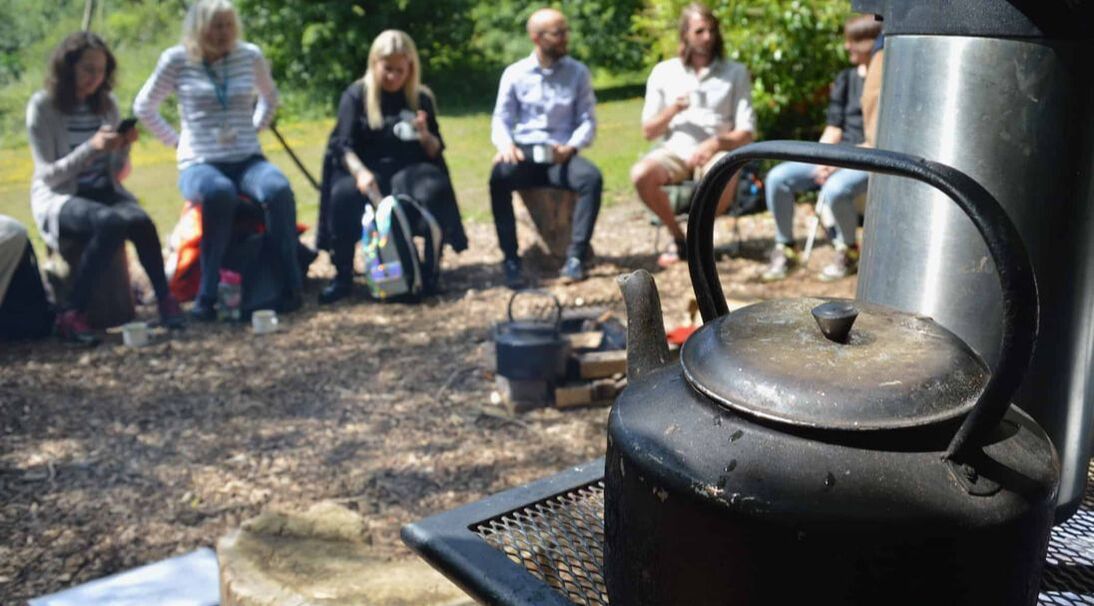
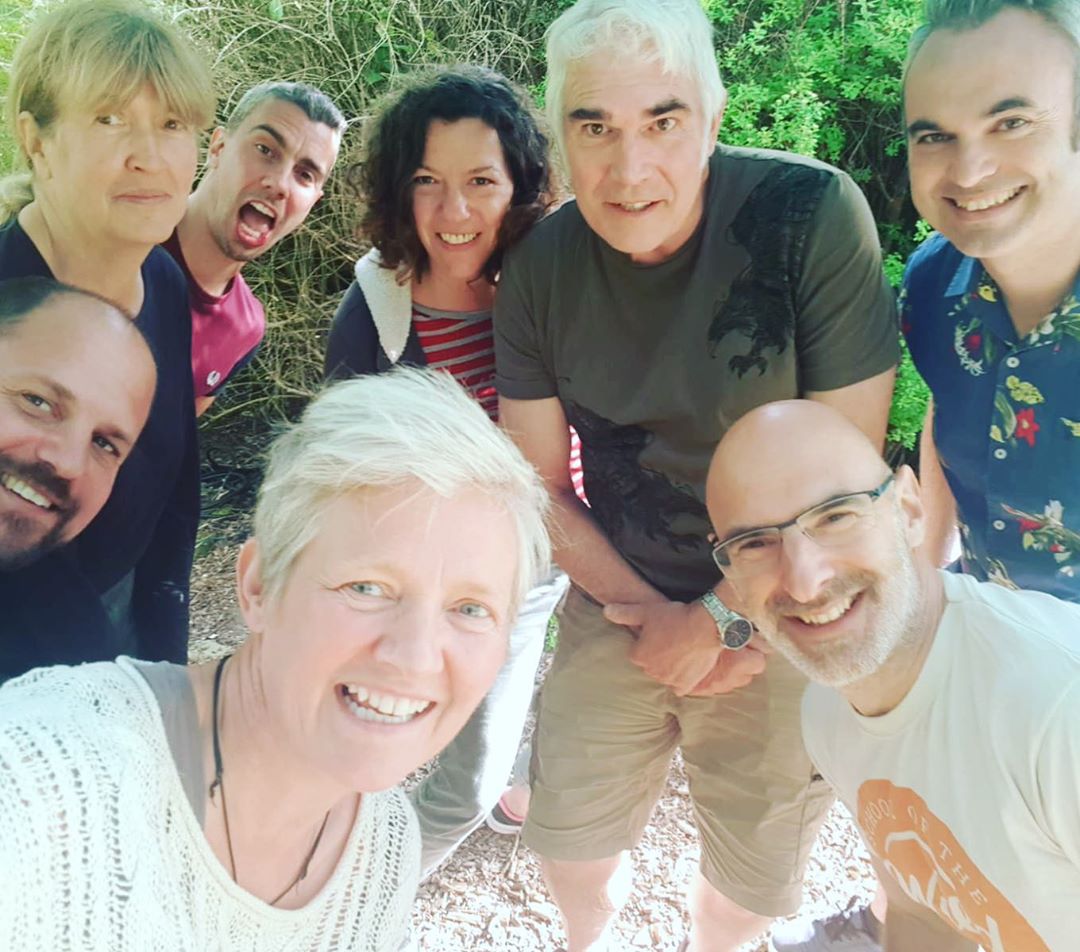
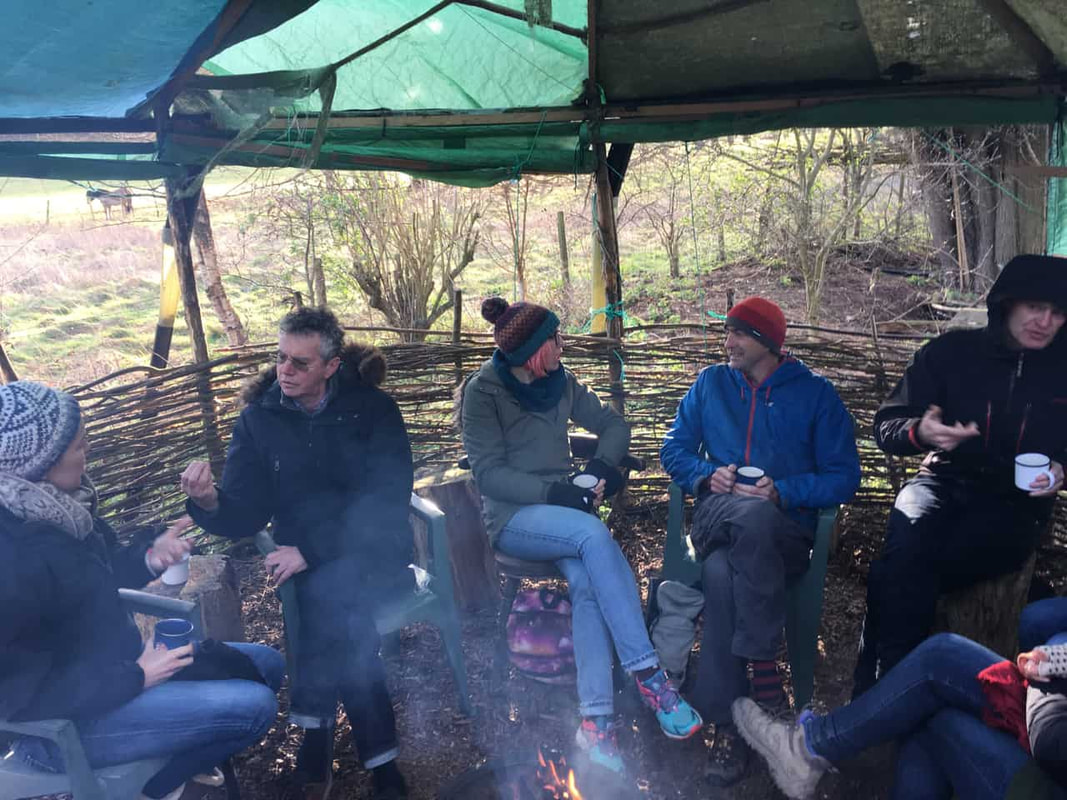

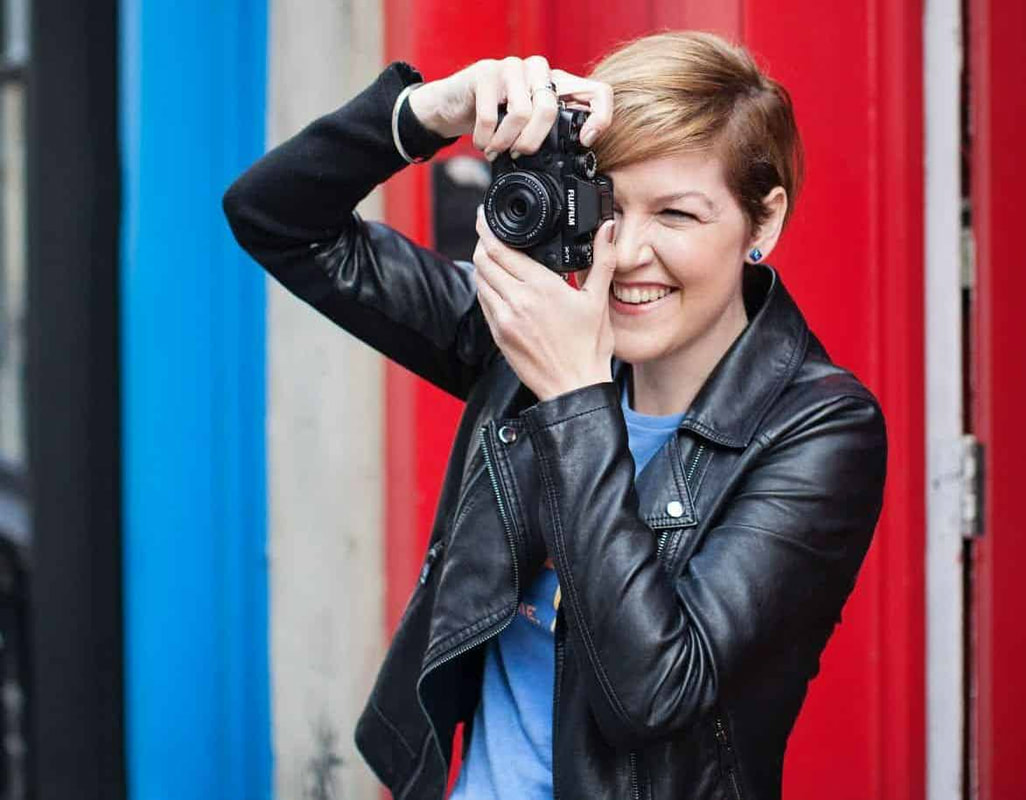
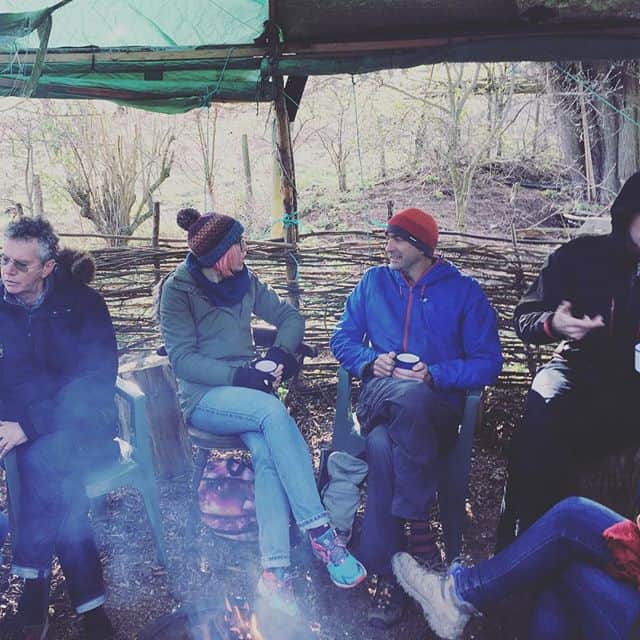
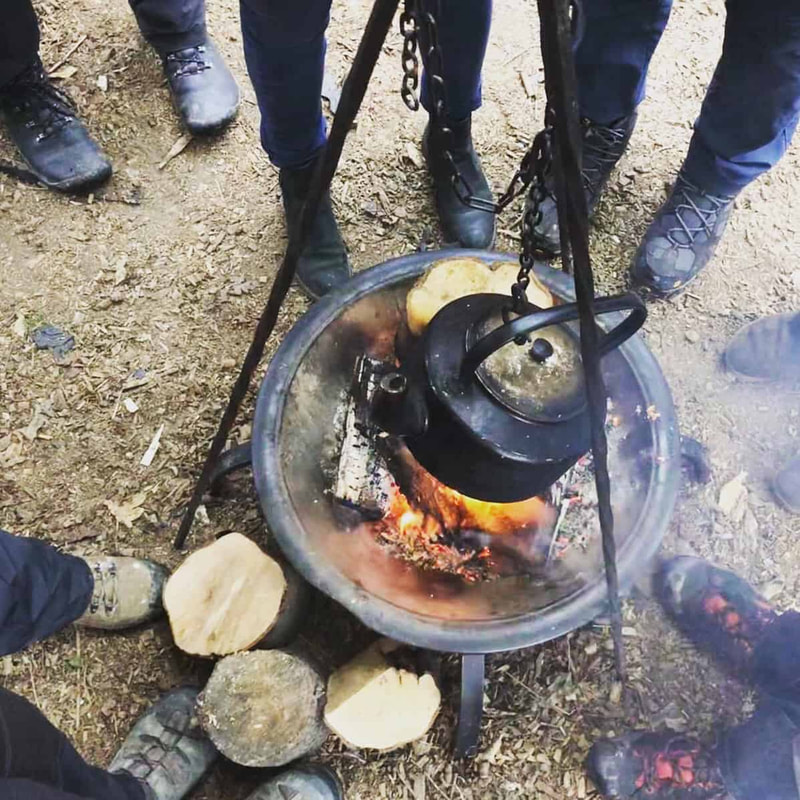
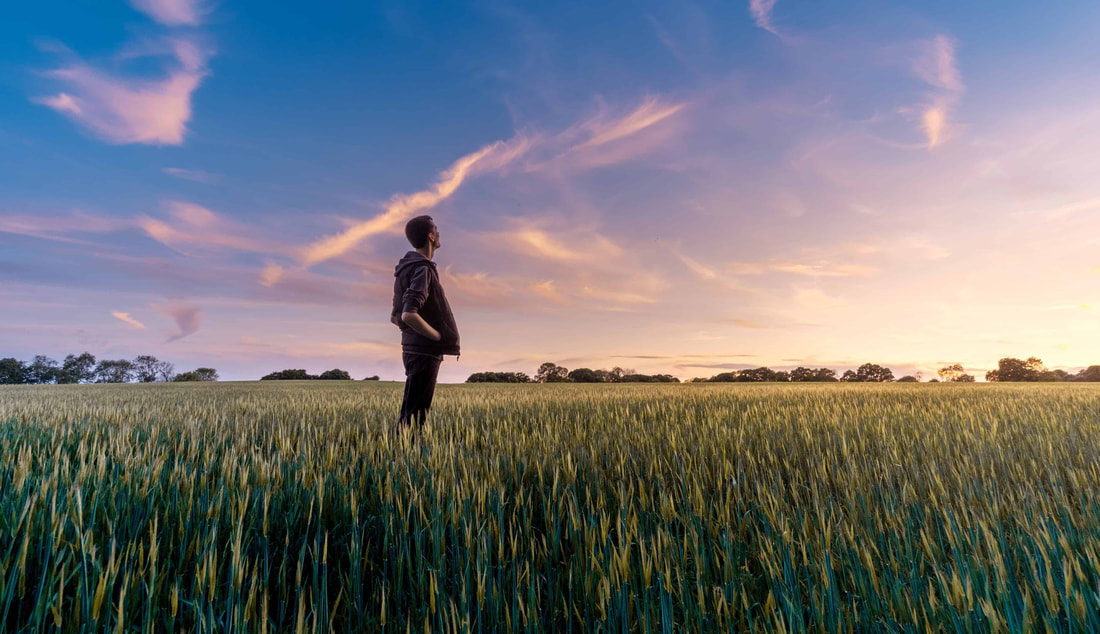
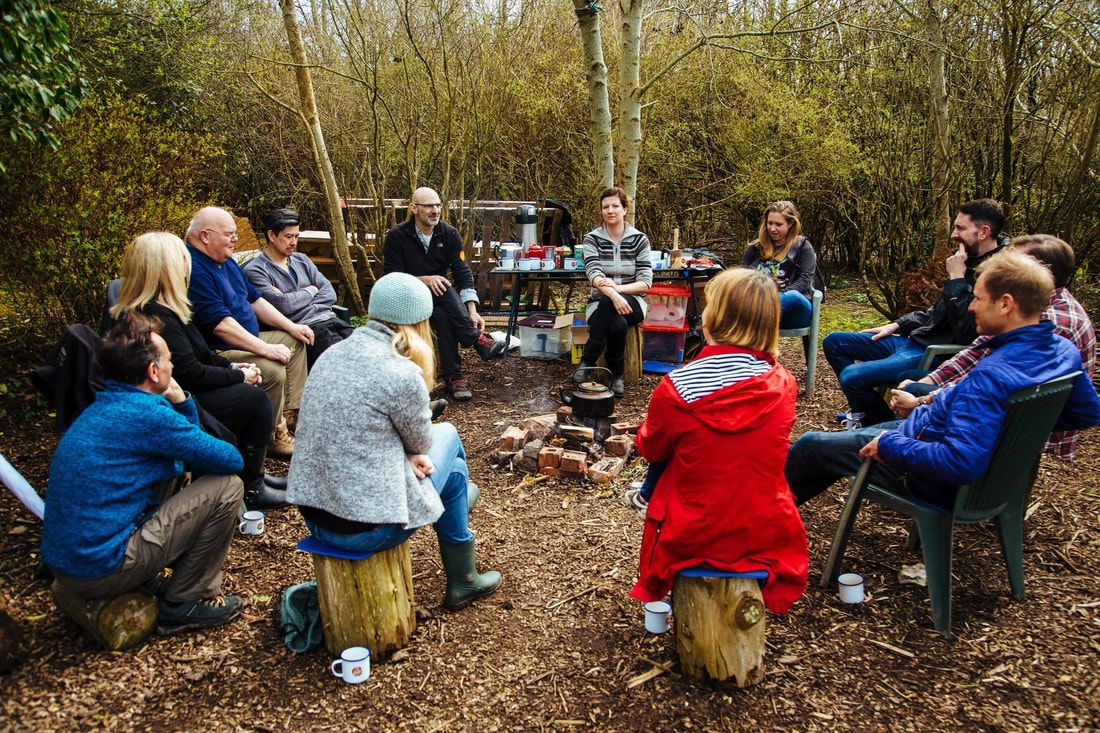

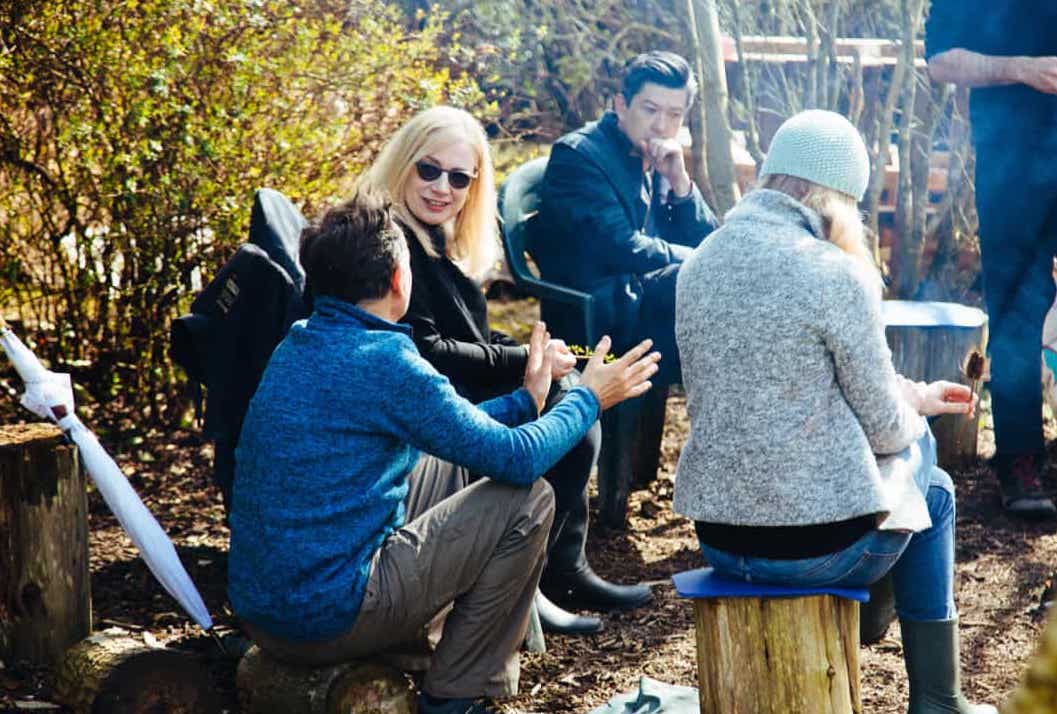
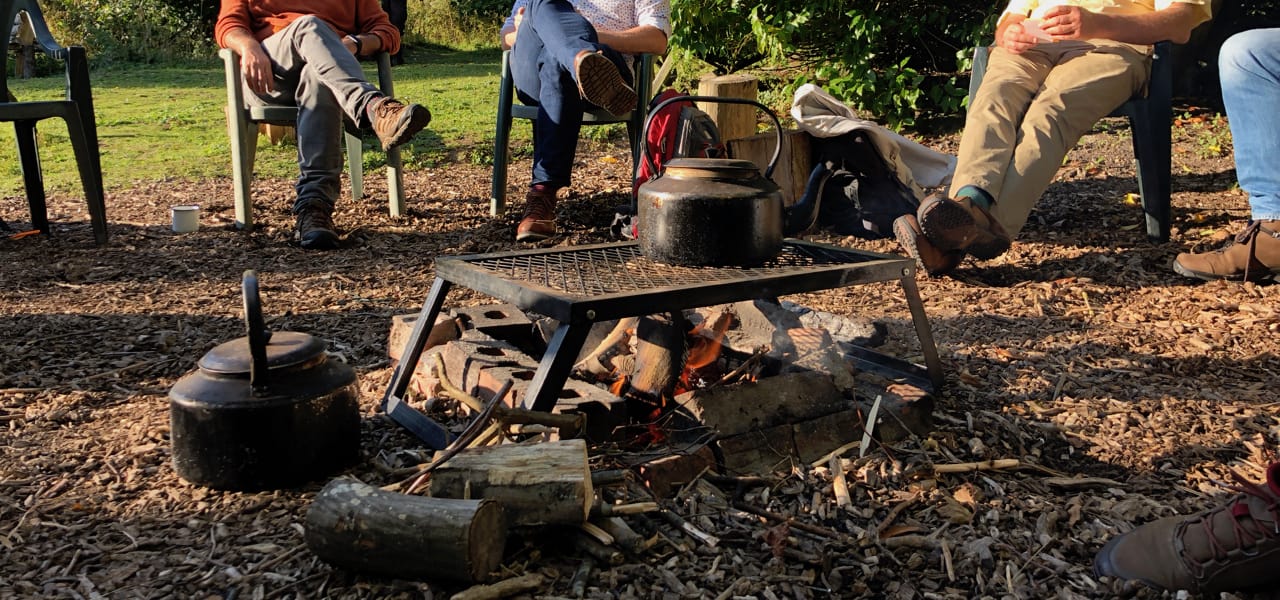
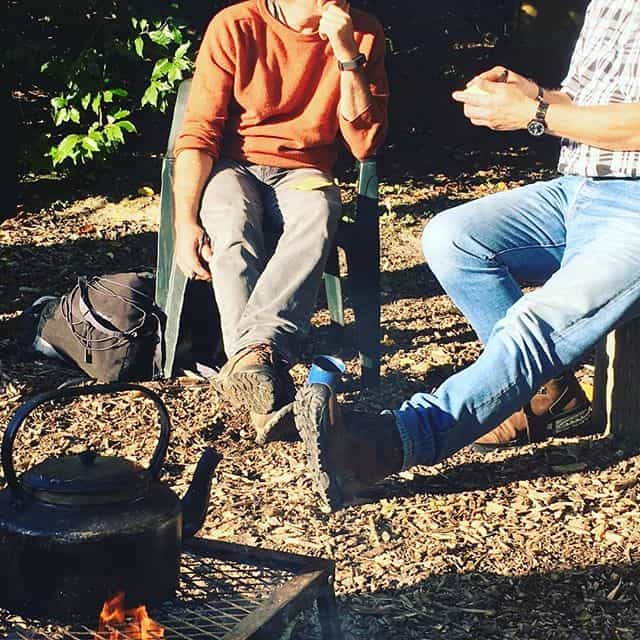

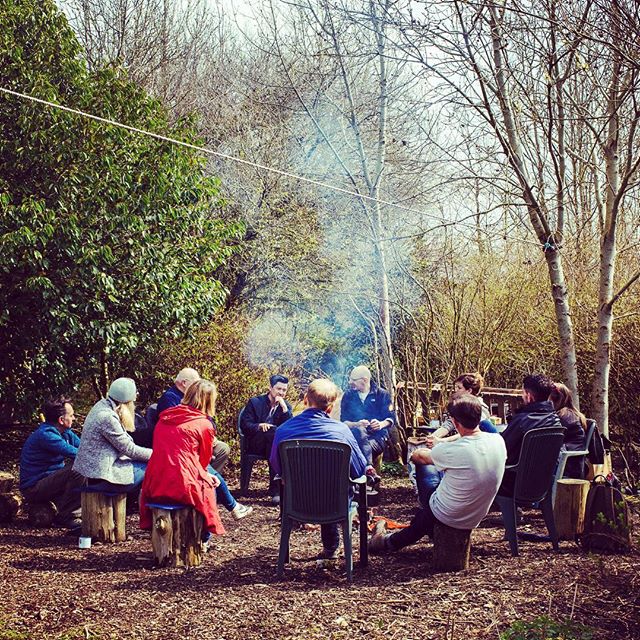
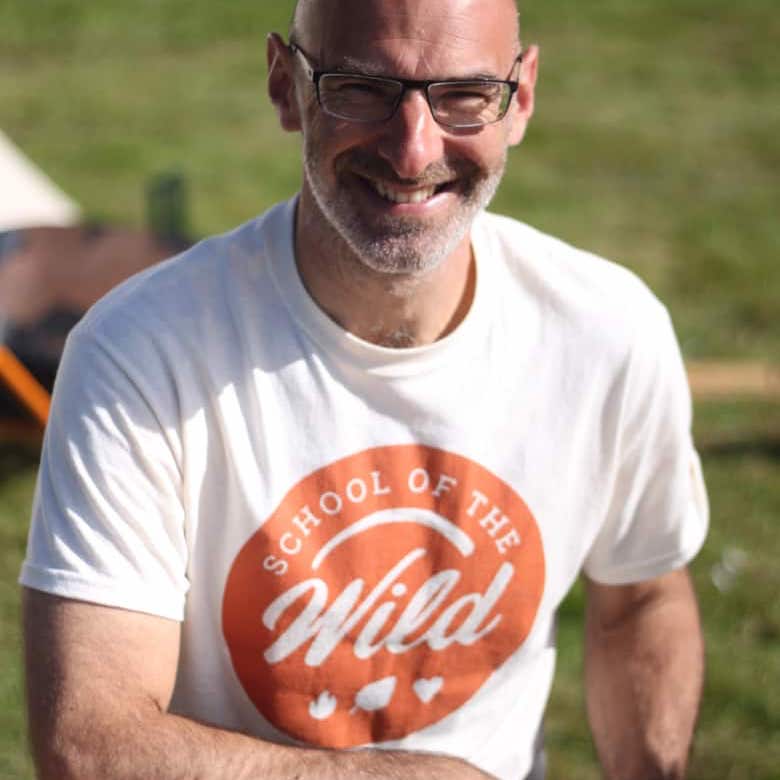
 RSS Feed
RSS Feed



